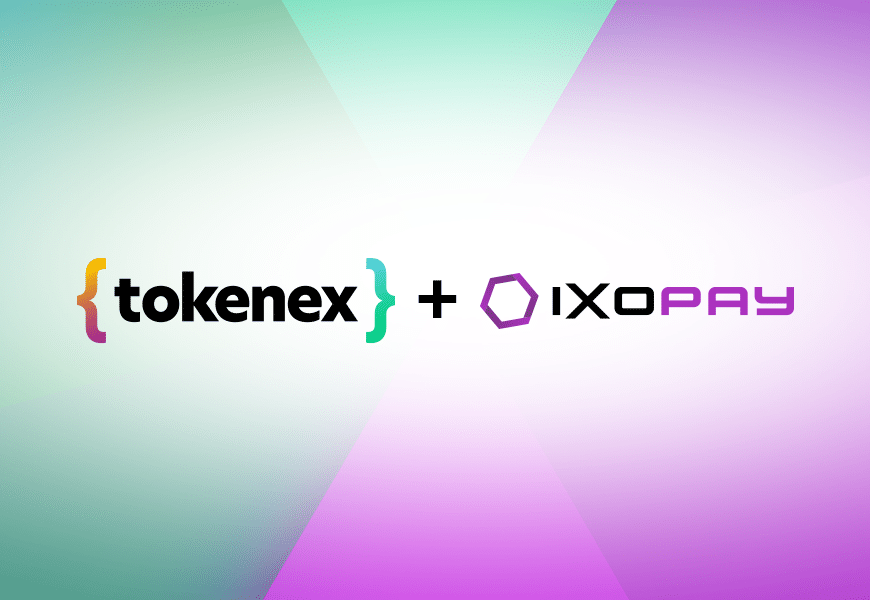As more online businesses emerge, the risk of cyberattacks increases. Online shopping is a convenient option that 2.64 billion customers worldwide enjoy. Today’s digital shoppers use various payment methods, such as mobile wallets, credit cards, debit cards, and even bitcoins. Unfortunately, cybercriminals take advantage of businesses that fail to secure customers’ payment details, leading to compromised data, loss of business reputation, and lawsuits. Let’s look at the benefits of payment tokenization for ecommerce businesses to help illustrate the importance of securing your sensitive data.
How Does Payment Tokenization Work?
Payment tokenization refers to replacing sensitive payment data with a randomly generated set of numbers known as a token. In ecommerce, sensitive data includes credit card numbers, bank account numbers, names, addresses, and more. Tokens do not contain sensitive information that could be compromised due to a data breach. Typically, payment tokens have thirteen to nineteen alphanumeric characters. These tokens can be stored and accessed in an organization’s internal systems while the original data is kept in a secure external environment.
Unlike encryption, tokenization produces tokens that are unique and irreversible. Since tokens do not represent any direct relationship with the original data, tokens cannot be reverted to their original form. Even if an organization suffers from a breach, the sensitive data will not be compromised due to payment tokenization. This will help prevent the business from experiencing severe legal and financial troubles.
What Are the Benefits of Payment Tokenization for Ecommerce Businesses?
As you can imagine, payment tokenization is crucial in helping ecommerce sites safeguard customers’ payment information. After all, cyberattacks like data breaches and credit card fraud have lasting adverse effects on businesses. Keep reading to check out the top benefits of this type of tokenization for ecommerce businesses.
Better Security and Payment Freedom
The global tokenization market is predicted to reach $5.6 billion by 2026, compared to $2.3 billion in 2021. That is a compound annual growth rate (CAGR) of 19 percent. A primary driver for this increase in tokenization is that it helps reduce the impact of breaches for merchants. Instead of storing your customers’ payment information in its original form, payment tokenization replaces this sensitive data with tokens. These tokens do not contain valuable data for hackers attempting to compromise your customers’ payment details. In turn, this adds another layer of security for customers on your website.
By working with a cloud tokenization provider like TokenEx, your business can work with any payment gateway, PSP, or third-party API. This payment flexibility allows you to choose payment processors with the best rates, lowest processing fees, and reliable uptime for your business. Additionally, it’s essential to maintain PCI compliance when using multiple processors.
Maintain Compliance
If your business stores and accepts credit card information, you are required to be PCI DSS compliant. While it may seem easy, meeting these data security requirements is time-consuming and costly for most organizations. A payment tokenization provider should already be compliant so that you can delegate much of this ongoing responsibility to the third-party provider.
Improve Customer Site Experience
Every business has unique payment needs, such as offering in-app purchases, recurring subscriptions, or the ability to send tokens to multiple gateways. A flexible data security provider can meet the requirements for these use cases, which will likely change over time. No matter how customers prefer to pay, a good tokenization provider can help ensure your organization’s sensitive data is safeguarded from harm.
Less Risk
A 2021 report by Ponemon Institute found that the average cost of a data breach is $4.24 million. If your business stores customers’ financial data in your internal environment, this can have a devastating impact if you suffer a data breach. Indeed, you are responsible for protecting your customers’ data. When a cyberattack strikes, your organization will likely be held accountable for this disaster and incur steep fines. Cybercriminals will target insecure systems that store valuable data, which they will use to sell to others or make fraudulent purchases.
While tokenization does not prevent data breaches, it does help prevent a breach from compromising customers’ valuable payment information. These providers will store the original data in a secure token vault, while the tokenized version will be accessible to you for maintaining business operations. Hackers will have no use for tokens as they do not contain any relevant data.
Secure Payments Are a Must for Online Businesses
Ecommerce businesses must prioritize securing customers’ payment information. Payment tokenization is an effective solution with several benefits, including improving your data security, site checkout experience, and customer trust. You can pass off the task of achieving and maintaining PCI compliance to the tokenization provider. If you are considering payment tokenization, contact TokenEx today to learn how payment tokenization can help secure your payment data.















